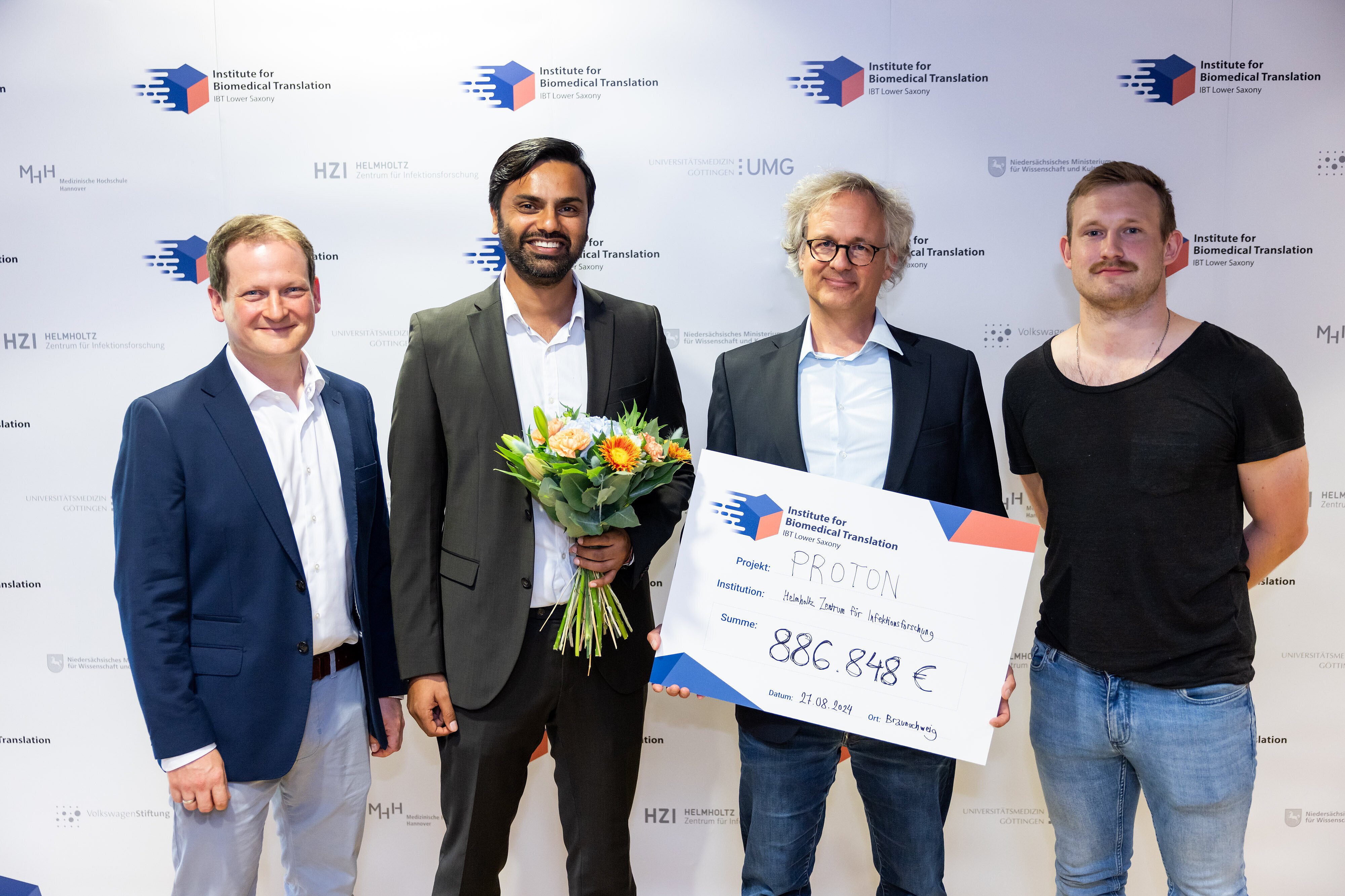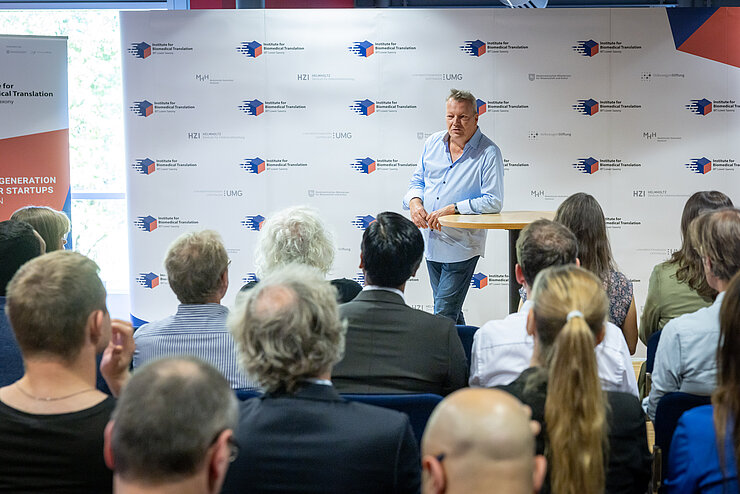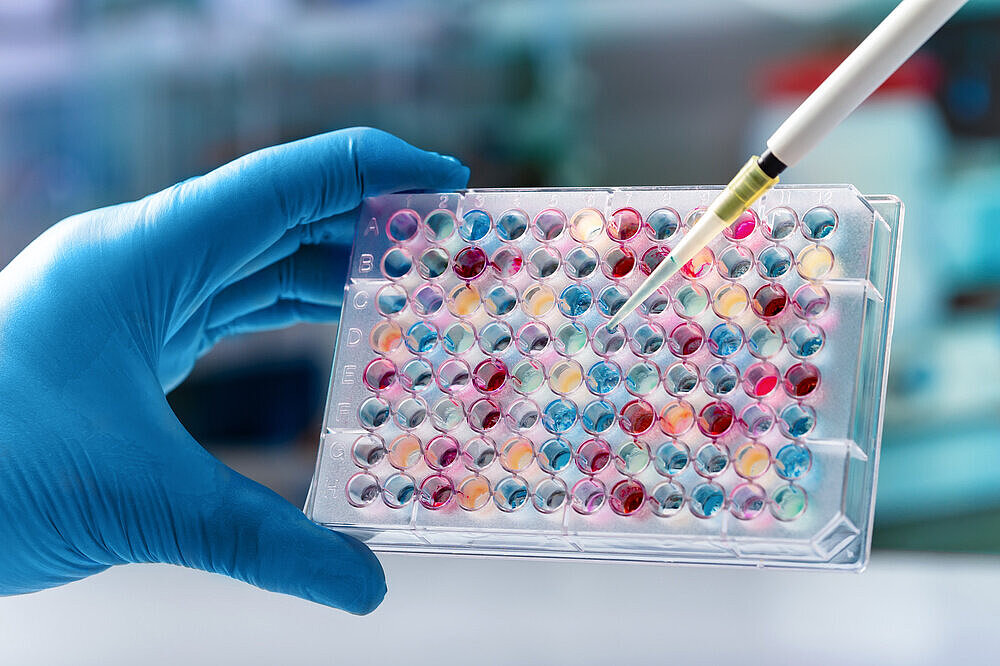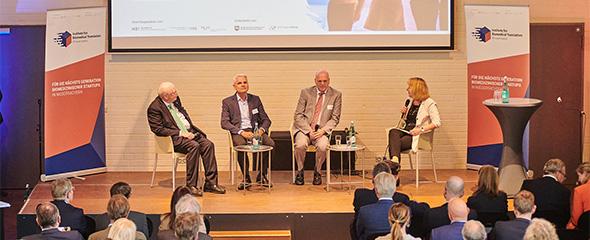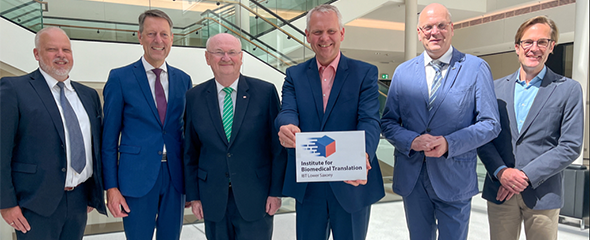Citrapeutics (HZI): Citrapeutics will take decisive steps towards developing orally available drugs that restore immunity and inhibit cell proliferation in cancer by inhibiting a novel therapeutic target, the enzyme cis-aconitate decarboxylase (ACOD1).
DeKox (HZI): Healthcare-associated infections, especially those caused by antibiotic-resistant bacteria, are a leading cause of morbidity and mortality worldwide. Since the human microbiota is a reservoir for these bacteria, we have developed an innovative probiotic-based approach to prevent infections before they occur. As part of our project, a team of scientists, clinicians and technology transfer experts aims to advance the development of our product candidate to remove antibiotic-resistant bacteria from the gut and validate it in a clinical trial with patients.
PROTON (HZI): Staphylococcus (S.) aureus is a human pathobiont that colonizes the skin and mucous membranes of about 20% of the population. When it breaks through barriers or under conditions of immunosuppression, S. aureus causes local and systemic infections. S. aureus can suppress immune reactions, destroy tissue and cause complications such as skin, lung and bloodstream infections as well as infective endocarditis. We offer technology to prevent the infection.
Bacta Implants (MHH): Bacta Implants develops implants for local long-term drug therapy. The implants are manufactured specifically for the patient's individual anatomy and are elastic so that they can be inserted into small, rigid niches, among other things. The current focus is on round window niche implants that release active ingredients directly into the inner ear to effectively treat sudden hearing loss.
iGUARD-NEXT (MHH): iGUARD-NEXT is developing an inhaled antiviral siRNA directed against human parainfluenza virus 3 (HPIV3), with the lead candidate targeting the L gene. The applied siRNA guide strand directs the host cellular RNAi machinery to the viral RNA in a highly sequence-specific manner, reducing unwanted off-target effects and degrading the viral RNA. Inhaled application delivers high local doses to the actual site of infection, which is a major advantage. At the same time, systemic bioavailability is largely reduced to reduce the risk of side effects.
LuFex (MHH): LuFex will develop a new inhaled treatment using a validated antifibrotic drug to treat organ fibrosis, with idiopathic pulmonary fibrosis as the first proof-of-concept disease. Tissue degeneration including the development of fibrosis can affect many organs, including the lungs, and is responsible for ∼50% of all deaths in industrialized nations.
ArthroPore (UMG): The goal is to develop an innovative treatment strategy for patients with OA based on the latest research in joint physiology. Our recent studies have shown that three-dimensional microchannels, so-called cartilage-bone marrow microconnectors (BMCMs), exist in the subchondral bone layer (SC) between cartilage and bone marrow, which have received little attention so far.
DiagnoSyn (UMG): The detection of aggregates of the neuronal protein alpha-synuclein (αSyn) is currently the best hope for the early diagnosis of Parkinson's disease and for monitoring disease progression. The goal of the project is to develop a diagnostic kit that allows the distinction between normal and Parkinson's-specific αSyn species.
REDBOCS (UMG): REDBOCS aims to provide comprehensive care to the population by developing an independent, low-threshold and standardized procedure for skin cancer screening. It can also relieve doctors and their practices of the burden of carrying out regular skin cancer screening and offers them the opportunity to concentrate on the suspected cases identified in the screening and thus use their medical knowledge in the best possible and most efficient way.
